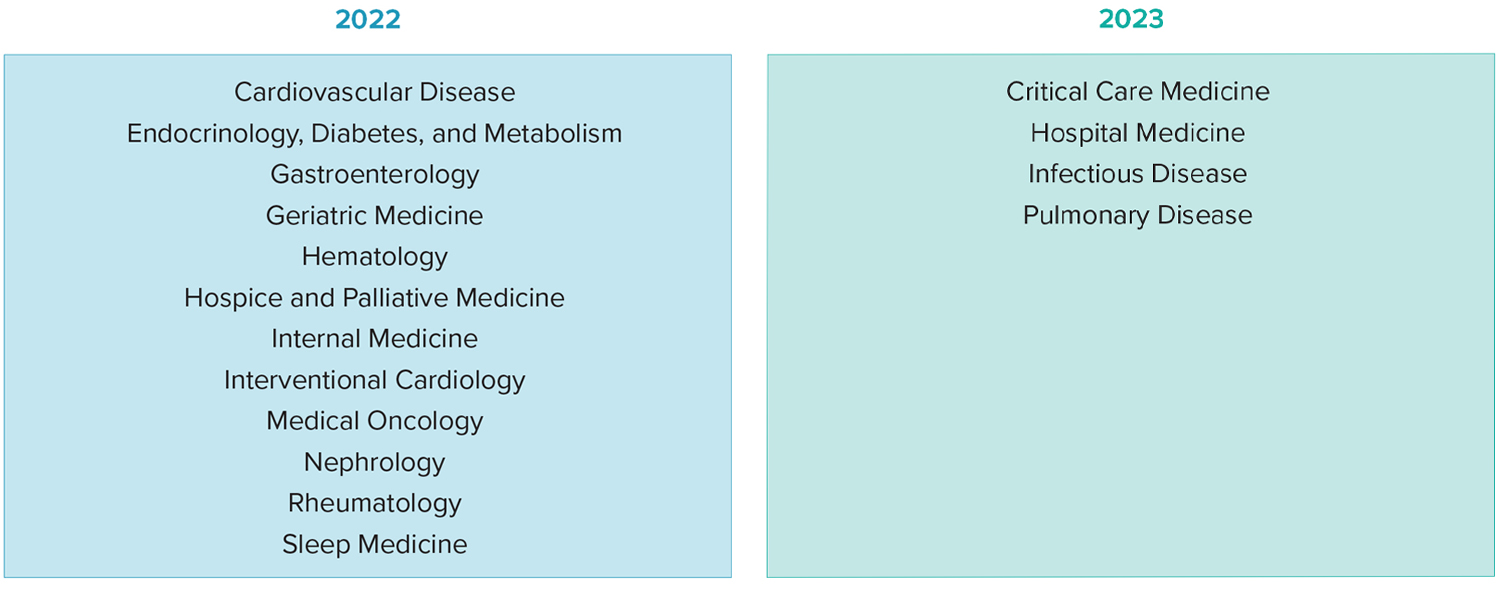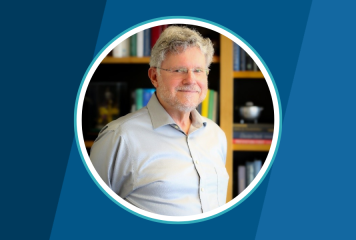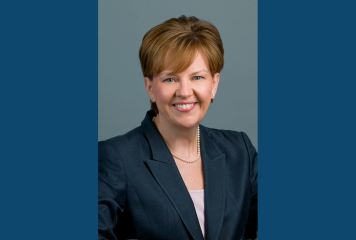Summary Report: Fall 2020 Geriatric Medicine Board Meeting
October 30, 2020 | Posted by ABIM | Uncategorized
Fall 2020 Meeting
The fall meeting of the Geriatric Medicine Board comes at an extremely important time for ABIM and its diplomates. The ongoing fight against the COVID-19 pandemic has brought many challenges upon the physician community, and it is against this backdrop that ABIM virtually convened the eight members of the Geriatric Medicine Board to discuss moving the discipline forward.
Below is a recap of the key topics discussed during the fall meeting:
Leadership Update
Richard J. Baron, MD, ABIM President and CEO, addressed the Geriatric Medicine Board and commented on recent issues that have arisen in health care due to the pandemic, including the disparities in COVID-19 infection and mortality rates in Black and Brown communities. He reiterated the important role ABIM and the ABIM Foundation play in addressing these issues, calling forth the organization’s joint Statement on Racial Justice issued over the summer. He also noted the increasing mistrust in medicine and institutions occurring broadly across swaths of society, and that ABIM Board Certification may be more meaningful now than ever as it serves as a demonstration of knowledge and professionalism upon which patients rely.
He then highlighted key ABIM policy decisions that were made this spring to offer physicians more flexibility in maintaining their certification in response to the pandemic:
- No one will lose certification if they aren’t able to complete a Maintenance of Certification (MOC) requirement this year.
- Physicians that have an assessment, attestation or points due in 2020 will have until 12/31/21 to complete them.
- Physicians currently in their grace year will be afforded an additional grace year in 2021.
- Those physicians whose Board Eligibility expires in 2020 may take the exam in their discipline in either 2020 or 2021, whichever works best for their individual situation.
Dr. Baron also provided an update on progress in developing a longitudinal assessment pathway, scheduled to launch in Geriatric Medicine in 2022. While this new pathway will better integrate education with assessment, Dr. Baron noted that it is still an assessment, and that a summative pass/fail judgement will be made at the end of a five-year cycle. More information about the longitudinal assessment pathway can be found later in the Specialty Board meeting summary.
Project Updates on Workforce Issues
Nancy Lundebjerg, CEO of the American Geriatrics Society (AGS), joined for this portion of the meeting as the board continued its discussion on training and related workplace issues.
Trends in Geriatric Medicine Certification
The Geriatric Medicine Board spent time exploring a topic discussed at previous meetings: why physicians who certify in geriatric medicine might choose not to maintain it over time, particularly for those who certify in other ABIM subspecialties.
Prompted by these earlier Specialty Board discussions, ABIM staff conducted 15 interviews with physicians who have lapsed geriatric medicine certificates to learn more about their current practice and why they chose to not maintain the certificate. The researchers will work with Dr. Leff and Kevin Foley, MD, a member of the Association of Directors of Geriatric Academic Programs (ADGAP) Board of Directors and a thought leader in the field of geriatrics workforce development, and will build on the interview findings to develop a survey that will reach a broader group of geriatricians.
The Specialty Board anticipates reviewing survey data and discussing this topic again at its spring meeting, and a question remains for the future—whether the introduction of the longitudinal assessment pathway will alter this certification trend when it is launched in Geriatric Medicine in 2022.
Forging Mid-Career Pathways for Geriatric Medicine
One potential solution to address these workforce issues is creating mid-career training pathways to enter geriatric medicine. Geriatric Medicine Board members have been collaborating with ADGAP and AGS on pathways forward, including a survey for Program Directors to gauge their interest in forging new mid-career pathways for geriatric medicine.
Survey distribution was delayed due to the COVID-19 pandemic. The goal is for AGS to assist with its dissemination this winter and the Geriatric Medicine Board to discuss findings when results are available.
Longitudinal Assessment Pathway Update
The Geriatric Medicine Board dedicated a session to discussing progress on the longitudinal assessment pathway, scheduled to become available in Geriatric Medicine in 2022. Since the initial announcement in August 2019, ABIM has released many details:
- The longitudinal assessment pathway will have a five-year cycle and include both a participation requirement and performance standard:
- Participation: Physicians will be offered 120 questions each year, for a total of 600 over five years.
Because ABIM understands that physicians have times when professional or personal responsibilities are especially demanding, they can take a break from the longitudinal assessment—skipping up to 100 questions over the course of each five-year cycle—without penalty.
- Performance: Feedback relative to the standard will be provided over the course of the five-year cycle, and a final passing determination will be calculated at the end of year five.
- It is a lower-stakes assessment option:
- Physicians cannot lose certification if they do not successfully meet the participation requirement or performance standard.
- In those instances, they can pass the traditional, 10-year MOC exam the following year to remain certified.
- There are many key features of longitudinal assessment that differentiate it from ABIM’s current assessment options, some of which include:
- The assessment promotes learning by providing immediate feedback, rationales and references for most questions.
- Questions can be answered any place or time, and the platform will be available on mobile phones, tablets, laptops and desktop computers.*
- Physicians will have four minutes to answer each question, along with a pool of extra time to access if necessary.
- There is no camera monitoring in use while answering questions; user identity and assessment security is achieved using alternative methods of validation.
*For questions that contain media files with audio, video or still images, the user experience is optimized on a laptop or desktop computer.
- The longitudinal assessment rollout schedule (see below):
Geriatric Medicine Board members discussed the longitudinal assessment updates with senior ABIM staff, and shared their thoughts on what has been developed thus far as well as the elements of the pathway that still need to be formalized. They were especially interested in scoring and how diplomates will be updated along the way regarding their progress relative to the set standard. This feedback will provide an opportunity for physicians to focus their study based on knowledge gaps and improve their performance over the course of the five-year cycle.
Diplomates are encouraged to provide feedback as additional features of the longitudinal pathway are still in development.
New proposed ABMS Standards
The American Board of Medical Specialties (ABMS) Standards Task Force was created in July 2019 as a byproduct of the ABMS-sponsored Continuing Board Certification: Vision for the Future Commission (Vision Commission). The group is drafting new standards, incorporating many recommendations of the Vision Commission. It is anticipated that a draft of the new standards will be available for public comment in late 2020/early 2021 – with potential adoption of final standards by ABMS in mid-2021. The Specialty Board anticipates discussing this topic again at its spring meeting once the new ABMS draft standards have been made public.
Reimagining the MOC Point System
ABIM has taken a proactive approach to evaluating its MOC points system, which is aligned with the ABMS requirements for lifelong learning and self-assessment. Currently, ABIM diplomates are required to earn 100 MOC points every five years to maintain their certification, and to earn any amount of points every two years to be listed as “participating in MOC.”
Specialty Board members provided observations about the current MOC points system and whether they thought it helped geriatricians stay current in knowledge and practice. They also discussed knowledge areas and skills that could be better recognized in the current MOC system, or by new activities created by external partners (e.g. professional societies, healthcare systems, medical schools).
This topic will be explored again at future ABIM Governance meetings, and ABIM is planning outreach to diplomates and stakeholder organizations this fall in order to gather feedback.
Discussion of Future Specialty Board Membership
The Geriatric Medicine Board received many outstanding candidates for Specialty Board membership and dedicated significant time to discussing their qualifications. Throughout this process, special care is given to ensuring that new members enhance the group’s diversity in terms of age, gender, race/ethnicity, geographic location and practice type.
Specialty Board members are ultimately chosen by the ABIM Council, who have oversight of Specialty Board composition across ABIM disciplines.
In Closing
The Geriatric Medicine Board welcomes feedback and commentary from diplomates, society partners and the greater medical community.
Do you have any questions? Are you interested in how to get involved?
If you have questions after reading this report, please connect with us through the following channels:
- Subscribe to the ABIM blog
- Call:1-800-441-ABIM (2246)
- Email: request@abim.org
- Join our Governance to help guide our future direction
- Join our Community Insights Network to share your feedback.





